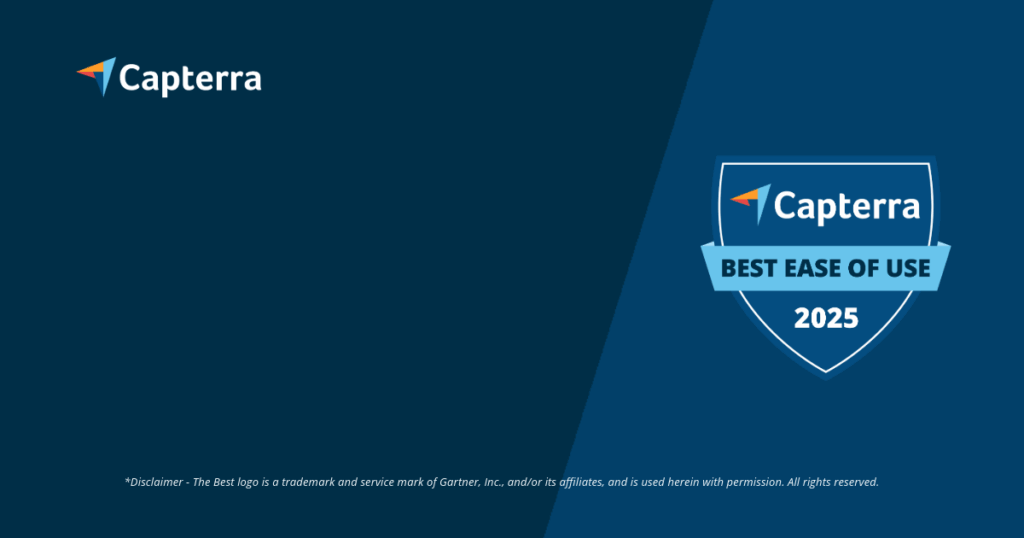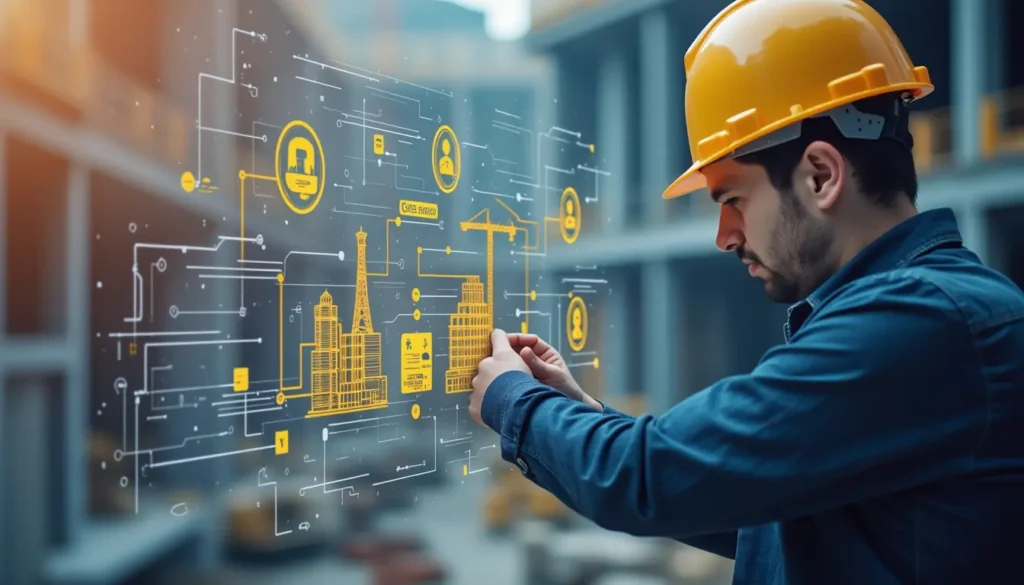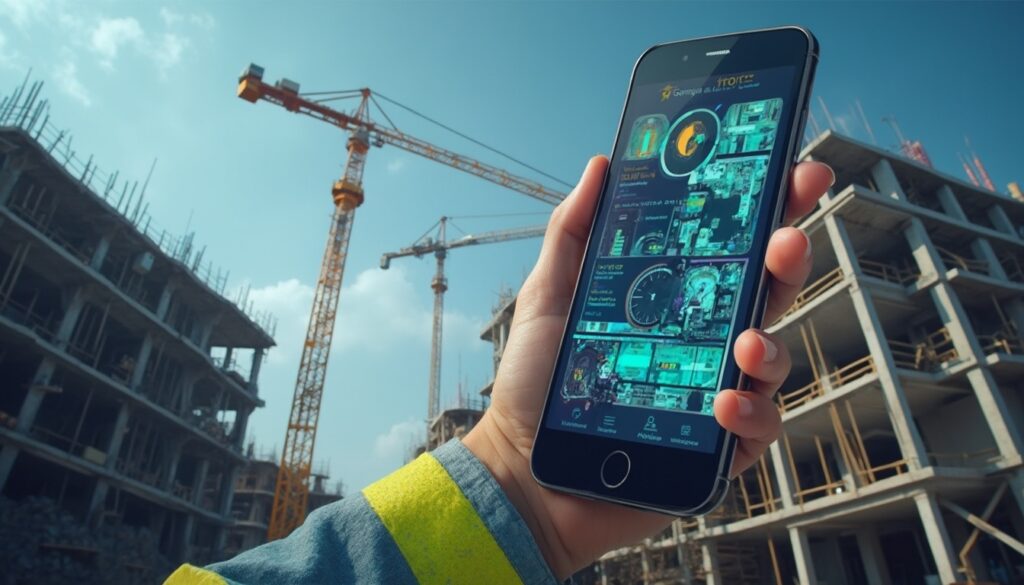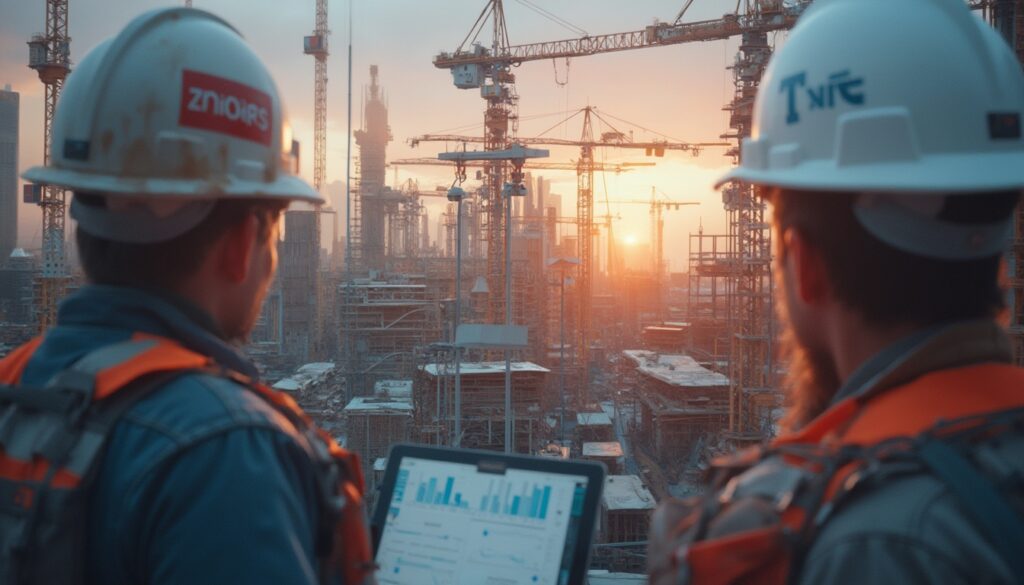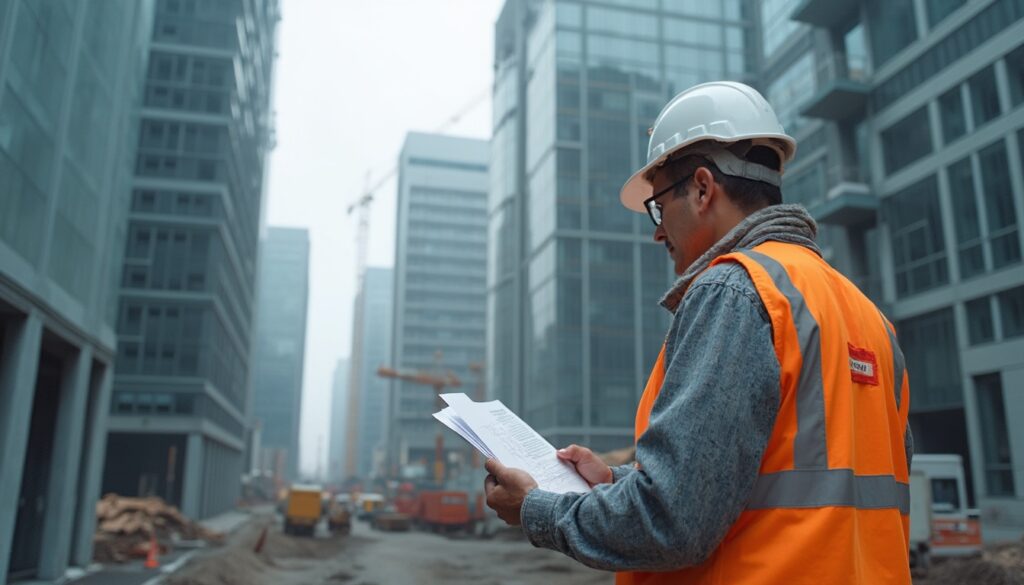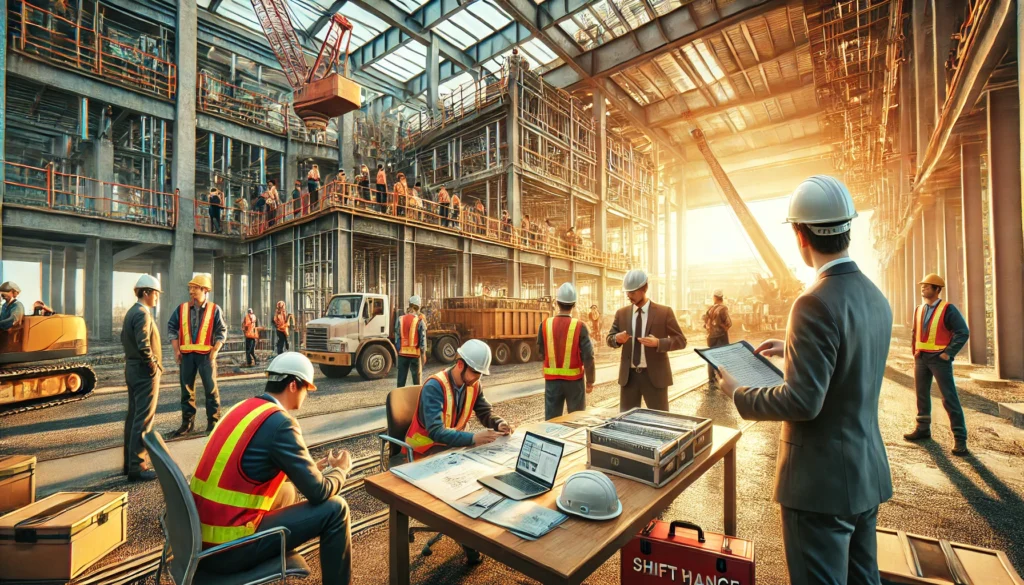Closing productivity gaps through data-driven processes
The construction industry suffers from a significant productivity gap caused by inefficient workflows. A Roland Berger study indicates an increase in productivity of only 4% over a decade. A major reason is the lack of structured data; valuable project knowledge often remains unused in emails or WhatsApp chats. AI systems, however, require high-quality data to identify patterns and optimize processes. According to a Fraunhofer study, data origin is the biggest area of tension in AI implementation. The solution lies in the systematic collection of project information. A platform that transforms everyday communication into structured, legally secure data lays the foundation for the use of artificial intelligence in the construction industry. Thus, simple messages turn into valuable information for the automated creation of daily construction reports and the analysis of project data. This data-driven approach is the first step toward overcoming efficiency barriers.
AI applications for increasing efficiency on the construction site
The use of artificial intelligence directly on the construction site revolutionizes daily workflows. AI-powered tools can significantly increase efficiency and safety. A Fraunhofer study shows that construction companies were able to reduce costs by 15% and project duration by 18% through AI project management. The greatest advantage lies in the automation of repetitive tasks and data-driven decision-making in real-time.
Concrete use cases include:
- Automatic progress tracking: AI analyzes photos from the construction site, compares the actual state with the BIM model, and automatically documents construction progress.
- Predictive maintenance: Sensor data from construction machinery is evaluated by AI algorithms to predict maintenance needs and reduce downtime by up to 20%.
- Optimized resource management: AI forecasts bottlenecks in personnel or materials and suggests alternative deployment plans to avoid delays.
- Improved safety: Systems automatically detect whether workers are wearing the necessary protective gear or whether hazardous areas are unprotected. This is crucial, as in 2019 there were 132 reportable accidents per 1,000 full-time workers.
These technologies are an important step in the digitalization of the construction industry and enable more precise control. The next level is the integration of this data into overarching project planning.
Plan projects more precisely and proactively minimize risks
Artificial intelligence is fundamentally changing not only execution but also the planning and project management phases. According to a PwC study, 48% of companies are already using AI in design and 42% in planning. Generative design, a form of AI, can create thousands of construction variants and evaluate them based on goals such as daylight incidence or material costs. A real estate developer was able to realize 6% more apartments while improving lighting at the same time. This ability to quickly simulate different scenarios minimizes planning errors and reduces the risk of costly rework.
In project management, AI analyzes historical and real-time data to detect risks early. The following points are central here:
- Risk prediction: Algorithms identify patterns that indicate potential delays or cost overruns, enabling proactive countermeasures.
- Automated reporting: The manual creation of daily construction reports and other documents is eliminated. AI automatically summarizes the data collected throughout the day.
- Optimized scheduling: AI systems like ALICE can simulate complex construction processes and optimize the critical path, leading to a reduction in construction time of up to 18%.
- Quality management: By analyzing photos and notes, defects can be detected early and assigned to the responsible trades.
Die Future of construction lies in the intelligent linking of planning and execution. However, this requires a solid and accessible data foundation.
Valoon as a bridge to AI-supported and legally secure construction documentation
The greatest hurdle to the widespread use of artificial intelligence in the construction industry is data quality and the acceptance of new tools. Complex software with high training requirements often fails due to a lack of usage by employees on site. This is exactly where Valoon comes in. We make the advantages of AI usable by relying on a tool that is already used by over 90% of teams: WhatsApp. Instead of installing a new app, your team communicates as usual. Valoon automatically structures this information in the background and creates legally secure documentation.
Our platform addresses central problems of everyday construction:
- Automatic daily construction reports: Save up to 60 minutes per site manager daily by automatically generating reports from photos, voice notes, and texts.
- Legally secure documentation: All data is stored immutably and time-stamped on German servers—fully GDPR-compliant.
- Overcoming language barriers: An integrated AI translation for over 20 languages ensures smooth communication in international teams.
- Simple defect management: Defects are recorded by photo and directly assigned to the correct trade, which reduces the remediation time by up to 50%.
Valoon is your simple entry into the future of the construction industry. We provide the structured data foundation necessary for intelligent analyses and efficient processes, without disrupting your established workflows. Thus, digital transformation becomes practical and straightforward.
Conclusion: Your advantage with Valoon
Artificial intelligence in the construction industry is no longer a future topic but a decisive competitive factor. It enables efficiency increases of up to 18% and ensures greater safety and transparency. With Valoon, you can leverage these potentials without high investments or complex software implementations. We focus on simplicity through integration into WhatsApp, creating time savings through automated processes like daily construction report generation, and ensuring legal security through comprehensive, GDPR-compliant documentation. Take the next step in digitization – uncomplicated and solution-oriented. Book your free demo now and discover how Valoon makes your construction projects more efficient.
More Links
Wikipedia provides general information about artificial intelligence (AI).
Wikipedia provides information about the German Research Center for Artificial Intelligence (DFKI).
Das Fraunhofer IAO offers a white paper on the topic of artificial intelligence in the construction industry.
The initiative de.digital provides a publication on AI use in Germany from the year 2024.
Das ifo Institute highlights in an article how more and more companies are using artificial intelligence.
Das Federal Statistical Office (Destatis) offers comprehensive information on the construction industry.
Springer Professional publishes an article about artificial intelligence in construction.
Statista provides statistics and forecasts on artificial intelligence in Germany.
Die Digital-Bau fair provides information about the use of artificial intelligence in construction.
Baumeister.swiss presents an article about artificial intelligence in construction.
FAQ
How does construction documentation work with Valoon and AI?
Your employees on the construction site use WhatsApp as usual to send photos, voice messages, and texts. Valoon analyzes this unstructured data in the background using AI, automatically assigns it to the correct project, and creates legally secure daily construction reports and comprehensive documentation from it. No new app or training for your construction team is required.
Is data collection via WhatsApp with Valoon legally secure and GDPR-compliant?
Yes. Although the input is done through the familiar WhatsApp interface, the data is not stored on WhatsApp’s servers but directly on our secure German servers. The storage is done immutably, with a time stamp, and is fully GDPR-compliant, giving you complete legal certainty for your construction documentation.
What specific AI features does Valoon offer?
Valoon primarily uses AI for automating and structuring your data. This includes the automatic creation of daily construction reports from unstructured messages, a live translation feature for over 20 languages to overcome language barriers, and the intelligent assignment of tasks and defects to responsible trades.
Do my employees on the construction site have to pay for Valoon?
No, for the employees on the construction site, using Valoon via WhatsApp is completely free. Costs are only incurred for users in the office who access the structured data via the web application, manage reports, and control projects. This pricing model lowers the entry hurdle and promotes acceptance throughout the team.
How quickly can Valoon be implemented in our company?
The implementation of Valoon is extremely straightforward and often takes just a few hours. Since no new software needs to be installed on the smartphones of construction site workers and no training is necessary, you can practically start immediately. You create a project, invite your employees via a link to the WhatsApp group, and documentation can begin.
For which company sizes is Valoon suitable?
Valoon is suitable for construction companies, planning offices, and project developers of any size—from small craft businesses to large general contractors. Our platform is scalable and flexibly adapts to the number of your projects and employees. The focus on simplicity and efficiency brings advantages for every team.
